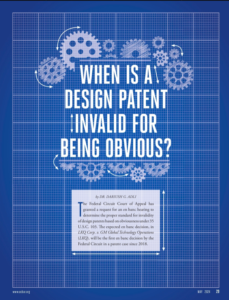ADLI advises and counsels businesses in identifying information and technology which may best be protected as a trade secret and helps obtain trade secret protection for such proprietary and economically valuable information.
Trade secret laws have traditionally been governed by state law according to the Uniform Trade Secrets Act (UTSA), which almost all states have now adopted to promote uniformity and consistency across the state lines. In addition, since 2016, trade secret enforcement can also be initiated under a federal version of the state trade secret laws, known as the Defend Trade Secrets Act (DTSA).
Armed with its reputation as the go-to intellectual property law firm for businesses large and small, ADLI provides strategic advice and counseling to businesses whose inventions may be subject to protection as a trade secret or under patent laws, to choose the option that is most suited to their particular structure and goals. Because maintaining a legally actionable trade secret claim requires adoption and implementation of measures to ensure secrecy of the subject material, ADLI counsels and advises clients on devising and implementing such confidentiality measures to allow clients to maintain a viable trade secret claim.
In addition to litigation representation, ADLI’s trade secret services include issuing and responding to cease and desist letters, pre-litigation strategizing and opinion letters, alternative dispute resolution, and licensing.
ADLI combines its impressive trade secret counseling and representation capability with a creative and custom-tailored fee structure; a combination, which has earned it a well-deserved reputation as the go-to firm for businesses of any size for counseling and representation in all intellectual property matters.
Designing Damages
In Samsung v. Apple, both determining “apportionment” and properly identifying an “article of manufacture” were key in the Court’s interpretation of the Code For over a century, design patents have enjoyed…
When Is A Design Patent Invalid For Being Obvious?
The Federal Circuit Court of Appeal has granted a request for an en banc hearing to determine the proper standard for invalidity of design patents based on obviousness under 35…
Deceptive Intent for Patent Unenforceability Based on a Pattern of Conduct
The Federal Circuit Court of Appeal has just issued a significant ruling in Luv n’ Care, Ltd. v. Laurain (Fed. Cir., Apr. 12, 2024, No. 2022-1905) 2024 WL 1590593, at *8–9 (LUV)…



